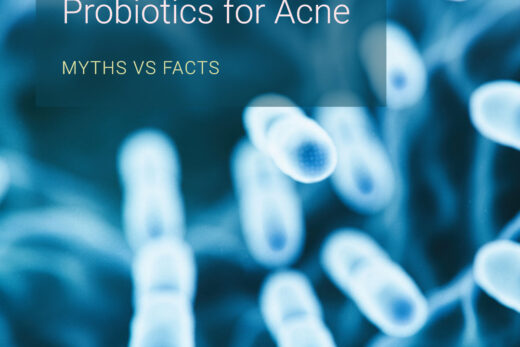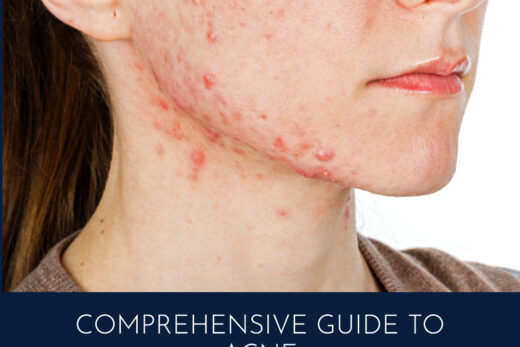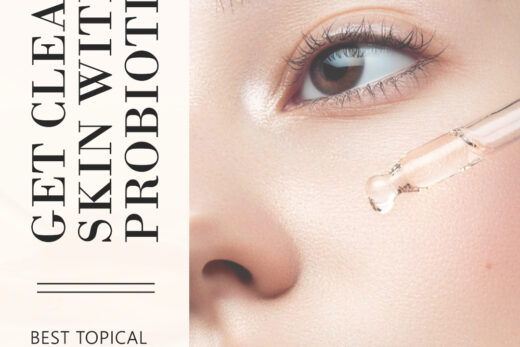Probiotics have long been known for their ability to improve gut health, but did you know they can also be beneficial in the fight against acne? In this article, we’ll explore the link between gut health and acne, and how the best probiotics for acne can help you achieve clearer, healthier skin.
The Connection Between Probiotics and Acne
Gut Health and Skin Health
The gut-skin axis refers to the relationship between the health of the digestive system and the health of the skin. Imbalances in gut bacteria can lead to inflammation, manifesting as acne on the skin. Probiotics, as beneficial bacteria, can help restore balance in the gut, ultimately improving skin health.
Probiotics and the Immune System
Probiotics can support the immune system and help manage inflammation, which can contribute to acne development.
Key Takeaways #1
Probiotics, by balancing gut microbiota, can potentially improve skin health by reducing inflammation that often manifests as acne.
How Probiotics Help Improve Skin Health and Reduce Acne
Anti-inflammatory Properties
Probiotics can reduce inflammation, a major factor in acne development, by regulating the immune system and producing anti-inflammatory metabolites.
Antimicrobial Properties
Probiotics can inhibit the growth of acne-causing bacteria, such as Cutibacterium acnes, by producing antimicrobial substances and competing with harmful bacteria for nutrients and space.
Barrier Function
Probiotics can help strengthen the skin’s barrier function, making it more resilient against acne triggers, by promoting the production of essential lipids and proteins that form the skin’s barrier.
Key Takeaways #2
Probiotics, through their anti-inflammatory properties and ability to inhibit acne-causing bacteria, can effectively reduce acne.
Different Types of Probiotics Beneficial for Acne
Lactobacillus
Lactobacillus strains, such as L. acidophilus, L. rhamnosus, and L. reuteri, have shown benefits for acne management through their anti-inflammatory, antimicrobial, and barrier-enhancing properties.
Bifidobacterium
Bifidobacterium strains, such as B. bifidum and B. longum, can improve acne by modulating the immune system, enhancing the skin’s barrier function, and producing antimicrobial substances.
Key Takeaways #3
Lactobacillus and Bifidobacterium strains are particularly beneficial for acne due to their anti-inflammatory, antimicrobial, and skin barrier-enhancing properties.
Can Probiotics Cause Acne or Make It Worse?
Die-Off Reactions
In some cases, the initial introduction of probiotics might cause a temporary increase in acne symptoms due to the “die-off” of harmful bacteria. This reaction occurs as toxins are released from dying bacteria, which may exacerbate inflammation in the short term.
Individual Reactions
Individual reactions to probiotics can vary, and it is important to find the right strain and dosage for one’s specific needs. In rare cases, some individuals may experience worsening of acne symptoms due to an immune response or intolerance to specific strains.
Key Takeaways #4
While initial probiotic use might temporarily intensify acne due to the die-off reaction of harmful bacteria, long-term benefits outweigh this temporary discomfort.
How Long Does It Take for Probiotics to Show Results in Acne Treatment?
Timeframe for Results
It may take several weeks of consistent use for probiotics to show results in acne treatment, but individual experiences can vary. Some individuals may notice improvements sooner, while others may take longer to see changes.
Factors Affecting Results
Factors that can influence the timeframe for results include the severity of acne, the specific probiotic strain, dosage, and individual factors, such as gut health, diet, and lifestyle.
Consistency and Patience
Consistent use of probiotics and patience when waiting for results are crucial for success in acne treatment. It’s important to remember that probiotics are not a quick fix and may take time to exert their full benefits. Regular consumption of probiotics, either through food or supplements, and a balanced diet and lifestyle can support overall gut health and, in turn, improve skin health over time.
Key Takeaways #5
Probiotics require consistent use over several weeks to manifest visible improvements in acne, emphasizing the importance of patience and continuity in probiotic use.
Selecting the Right Probiotics for Acne
After understanding the role of probiotics in managing acne, it becomes clear that choosing the right probiotics can make a significant difference. Each strain of probiotic bacteria has its unique properties, and not all may be beneficial for acne. Selecting the most effective probiotics for acne involves considering various factors such as the strain of bacteria, the dosage, the form in which you take the probiotic and more.
To gain a more in-depth understanding of how probiotics can aid in acne management, we invite you to explore our detailed guide, “Choosing the Best Probiotics for Acne”.
The Science Behind Probiotics and Acne (for Nerds)
https://www.ncbi.nlm.nih.gov/pmc/articles/PMC5418745/
Influence of probiotics on immune regulation and skin health:
- Kober MM, Bowe WP. The effect of probiotics on immune regulation, acne, and photoaging. Int J Womens Dermatol. 2015 Apr 6;1(2):85-89. doi: 10.1016/j.ijwd.2015.02.001. PMID: 28491964; PMCID: PMC5418745.
https://www.frontiersin.org/articles/10.3389/fmicb.2018.01459/full
Balancing the gut microbiome, which can influence inflammation and skin health:
- Salem, I., Ramser, A., Isham, N., & Ghannoum, M. A. (2018). The gut microbiome as a major regulator of the gut-skin axis. Frontiers in Microbiology, 9, 1459.
https://pubmed.ncbi.nlm.nih.gov/23582165/
Efficacy of an acne treatment regimen with and without a probiotic supplement:
- Jung GW, Tse JE, Guiha I, Rao J. Prospective, randomized, open-label trial comparing the safety, efficacy, and tolerability of an acne treatment regimen with and without a probiotic supplement and minocycline in subjects with mild to moderate acne. J Cutan Med Surg. 2013 Mar-Apr;17(2):114-22. doi: 10.2310/7750.2012.12026. PMID: 23582165.
https://www.ncbi.nlm.nih.gov/pmc/articles/PMC6048199/
The Gut Microbiome as a Major Regulator of the Gut-Skin Axis
- Salem I, Ramser A, Isham N, Ghannoum MA. The Gut Microbiome as a Major Regulator of the Gut-Skin Axis. Front Microbiol. 2018 Jul 10;9:1459. doi: 10.3389/fmicb.2018.01459. PMID: 30042740; PMCID: PMC6048199.
https://www.ncbi.nlm.nih.gov/pmc/articles/PMC7090755/
Probiotics and prebiotics potential for the care of skin, female urogenital tract, and respiratory tract
- Bustamante, M., Oomah, B. D., Oliveira, W. P., Burgos-Díaz, C., Rubilar, M., & Shene, C. (2020). Probiotics and prebiotics potential for the care of skin, female urogenital tract, and respiratory tract. Folia Microbiologica (Praha), 65(2), 245-264. doi: 10.1007/s12223-019-00759-3.




